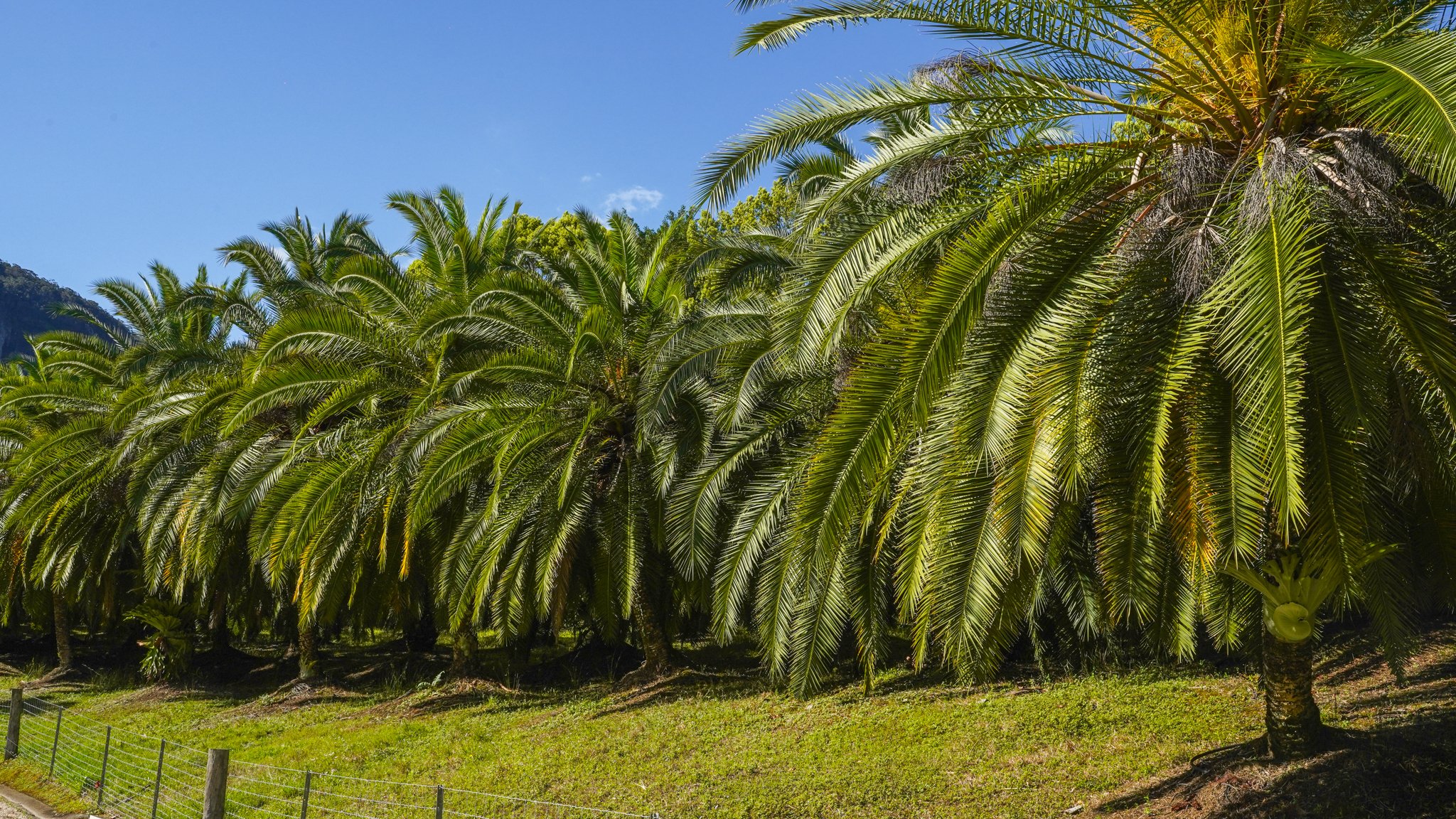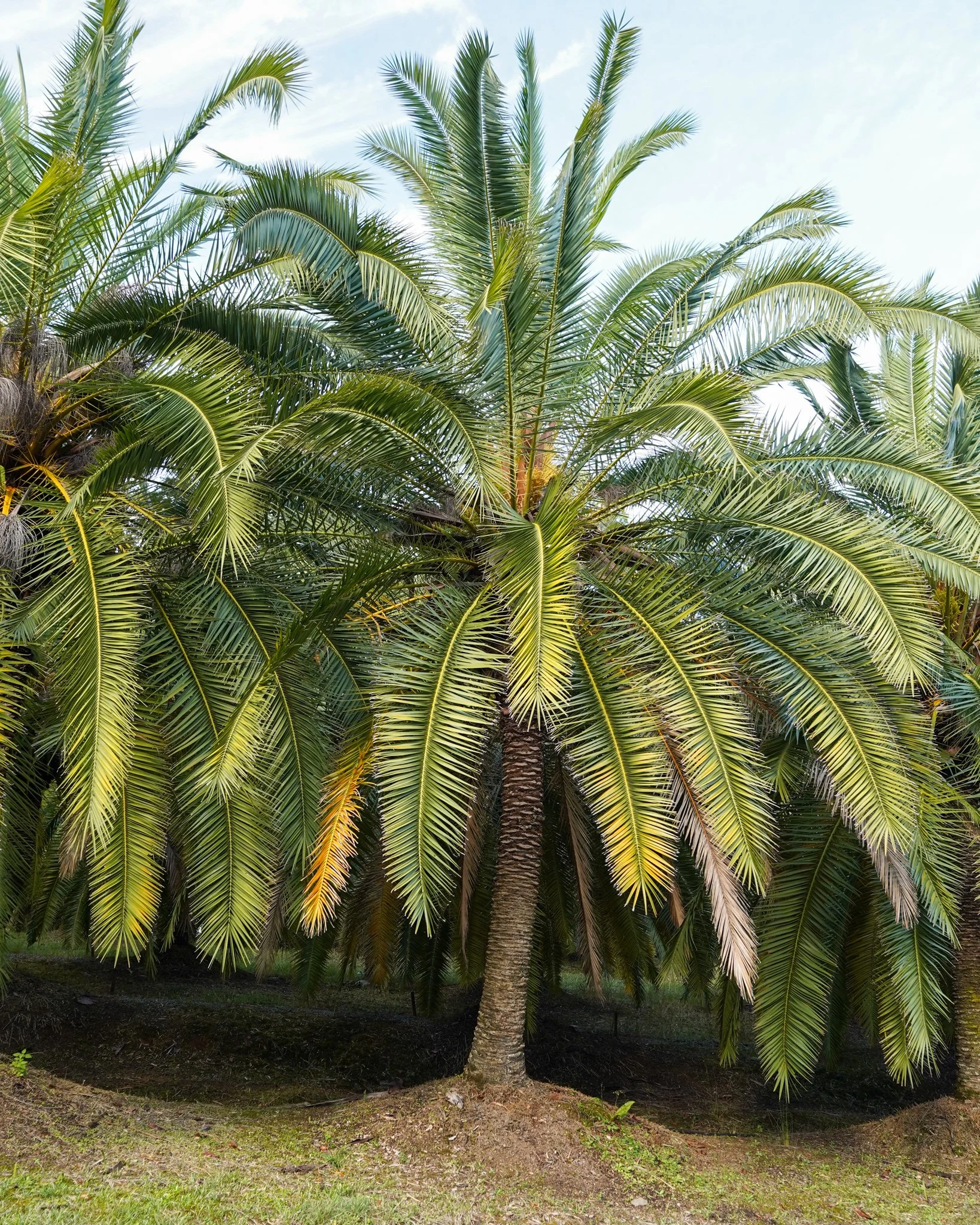
Phoenix Rupicola
(Phoenix Rupicola)
PHOENIX RUPICOLA
The Phoenix Rupicola, a true gem for your landscape. Also known as the Cliff Date Palm or Indian Date Palm, this captivating palm tree showcases its slender trunk and feather-like, emerald green leaves, creating a tropical paradise in your outdoor space. Native to the rugged Western Ghats of India, it thrives in rocky terrain, adding a touch of exotic allure to even the most challenging garden environments. With its striking appearance and cultural significance in its native range, the Phoenix rupicola is more than just a palm; it's a living work of art, a symbol of resilience, and a conversation piece that will transform your landscape into an oasis of natural beauty.









Frequently Asked Questions
-
Caring for Phoenix Rupicola, also known as the Cliff Date Palm, is relatively straightforward. These palms thrive in well-drained soil and require regular watering, especially during their growing season. Ensure they receive ample sunlight, as they prefer full sun to partial shade. Trimming away dead or damaged fronds can help maintain their health and appearance. Additionally, providing a balanced, slow-release fertilizer during the growing season can support their growth. Overall, these palms are hardy and easy to care for, making them a great addition to your landscape.
-
Phoenix Rupicola thrives in specific conditions to reach its full potential. It prefers well-drained soil that allows excess water to escape. Adequate sunlight is crucial, so plant it in a location where it can receive full sun to partial shade. With these optimal conditions, you can enjoy the beauty of Phoenix Rupicola in your landscape.
-
Fertilizing Phoenix Rupicola, the Cliff Date Palm, can be beneficial for its overall health and growth, especially if you want to encourage more vigorous development. To support its well-being, consider applying a balanced, slow-release fertilizer during the growing season. However, these palms are quite resilient and can thrive without frequent fertilization, particularly if they are planted in nutrient-rich soil. Therefore, while fertilizing is beneficial, it may not always be necessary, depending on your specific conditions and goals for the palm.


